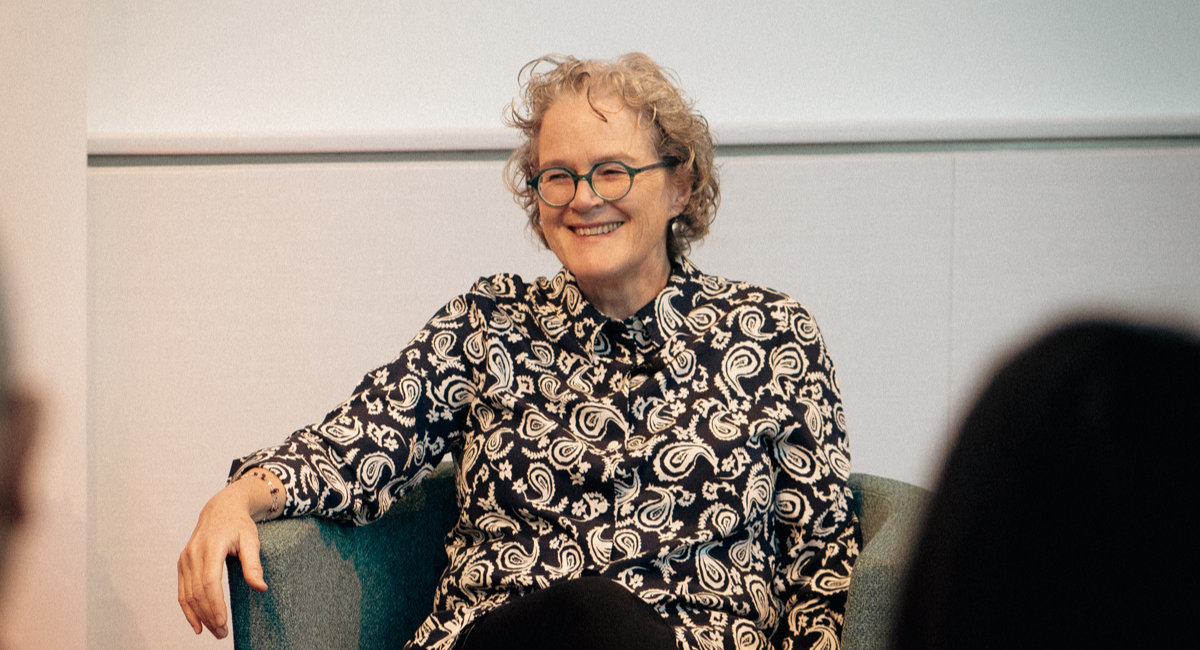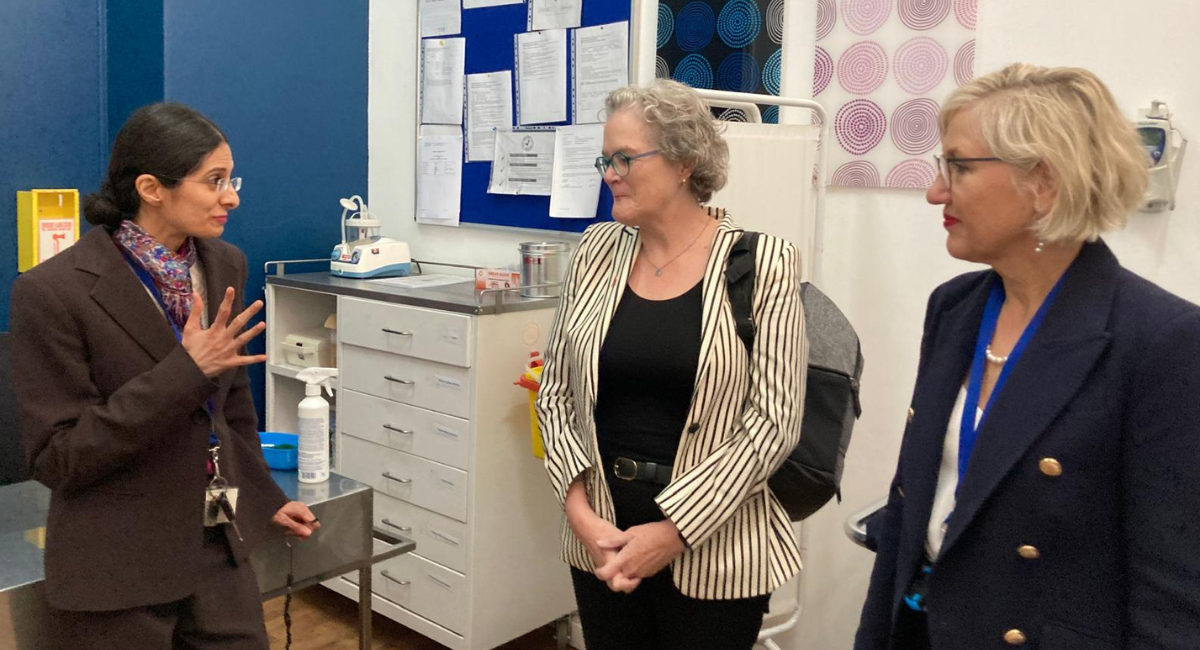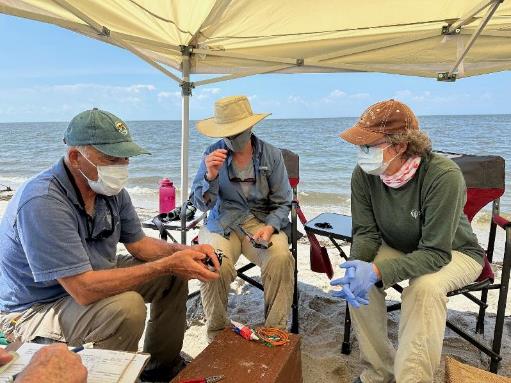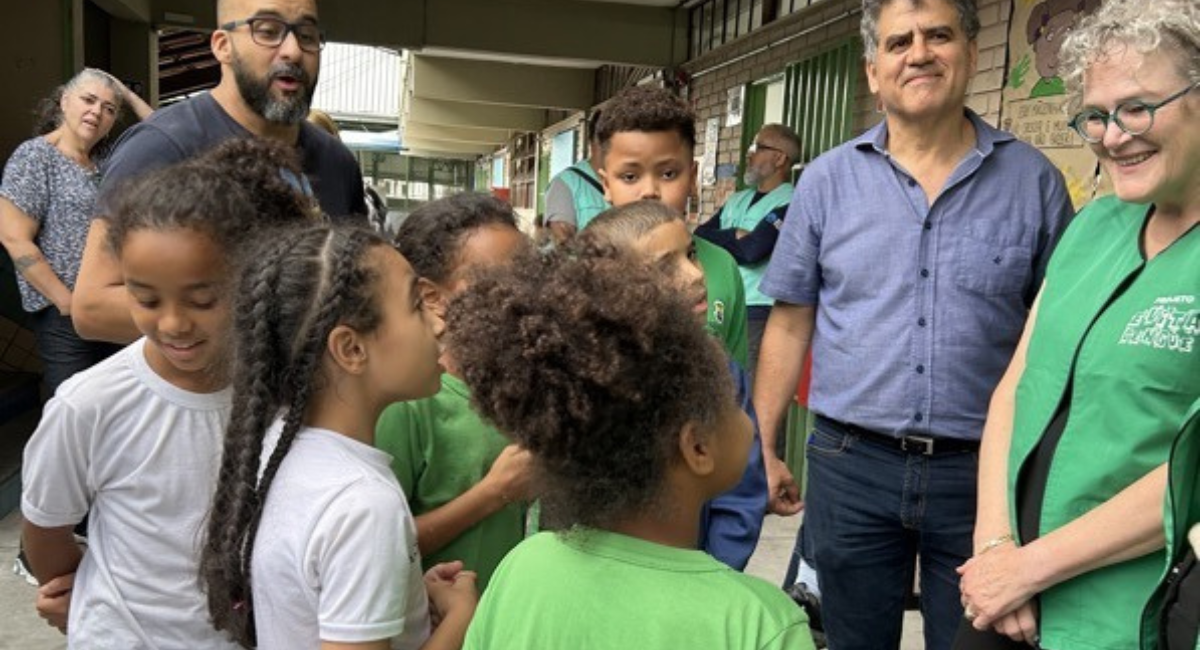
Jeanne Marrazzo is the 2025 School of Public Health Alumni of Impact Awardee. Photo credit: NIAID.
One of the most challenging moments of Dr. Jeanne Marrazzo’s career was also one of the most important.
Years ago, she was running a large study in Africa to see whether two forms of medication to prevent HIV were effective in women. Participants were randomized into one of several groups: a group who received the HIV medication PrEP through either pills or a vaginal ring, and a group who received a placebo in the same form.
At the end of the study, the results were shocking: researchers did not observe the medicine having an effect, despite other studies of the drug finding efficacy. The researchers gathered the group of participants for a conversation and learned that few of them had actually taken the medicine. Instead, they continued to participate in the study because they appreciated access to free screening services and contraception at the clinic where the study was being run.
While this experience was disappointing, Marrazzo and her team learned two important lessons. First, it was important in any research going forward to collect biomarkers from participants (such as urine or blood samples) to document study product use, rather than only relying on a participant’s answers. Second, it was important for researchers to understand the perspectives and needs of the communities they serve.
“It goes back to this holistic principle of public health,” Marrazzo said. “Our work is ultimately about people, not pathogens. You have to deal with pathogens, but they are part of the person.”
Marrazzo, a University of Washington (UW) School of Public Health epidemiology alum, is a national medicine and public health leader who has had a long career leading impactful research on sexually transmitted infections and infectious diseases. Most recently, she served as the nation’s leading infectious disease expert as the director of the National Institute of Allergy and Infectious Diseases (NIAID). But Marrazzo said an important shift over her career has been from leading public health research to communicating what this research means to communities.
“In order to engage people, you have to respect the audience and meet people where they're at emotionally, psychologically, and in terms of content awareness,” Marrazzo said.
For her significant contributions to public health, Marrazzo is the 2025 recipient of the UW SPH’s Alumni of Impact Award, the highest honor the School gives to alumni for distinguished service and achievement across public health. She will address the School of Public Health Class of 2025 at their Graduation Celebration June 16.
“Dr. Marrazzo has been a leader in the field of infectious diseases for more than three decades, tackling some of the biggest challenges in our lifetime, from HIV to COVID-19,” said Hilary Godwin, dean of the UW School of Public Health. “She is a champion for vulnerable and underserved populations and is a tireless and effective advocate for interventions to improve public health. We are thrilled to recognize her as the 2025 Alumni of Impact Awardee.”
An interdisciplinary approach to public health
Marrazzo began her career studying medicine. In the late 1980s, she did a residency in internal medicine at Yale-New Haven Hospital, where an entire floor was dedicated to patients suffering from HIV. This was during the height of the HIV epidemic, a few years before an effective medicine was created for the disease, which meant HIV patients primarily received palliative care. Marrazzo’s mother was a nurse, and she heard stories from her mother of colleagues who refused to care for many of the gay and bisexual men with the illness.
But the mysterious nature of the virus, the stigma people had toward queer communities impacted by it, and Marrazzo’s fascination with infectious diseases led her to want to study viruses like HIV. She observed that solving this was something that required collaboration across disciplines.
“It was one of the first diseases, at least in my lifetime, that really forced everybody to sit down at the table and say, ‘How are we going to attack this from the bench to the community?’” Marrazzo said.

This curiosity to solve a problem holistically led her to consider a career in public health. Marrazzo began an infectious disease fellowship at the University of Washington. In Seattle, she was encouraged by UW faculty King Holmes to also earn her master’s of public health in epidemiology.
This intersection of her clinical fellowship and public health studies began a unique and powerful experience for Marrazzo. At the UW, people across disciplines were working together to solve public health problems. That meant that a question like a measles outbreak could be analyzed from virology, biostatistics, and behavioral health all at once, leading to stronger solutions for complex public health challenges.
“It was an unbelievably rich and welcoming interdisciplinary environment,” Marrazzo said. “There was a real openness to asking hard questions and then inviting people to look at those questions from very different angles.”
This interdisciplinary approach was unique at the time to only a few schools of public health, Marrazzo said, but UW SPH’s collaborative learning environment was soon replicated at other schools, as its alumni graduated and brought the model across the country. Marrazzo found this interdisciplinary training to be especially helpful during the COVID-19 pandemic in working with colleagues to understand infection rates, develop vaccines and study treatments.
The rigor of the UW SPH epidemiology program provided an important foundation for her career, Marrazzo said. She would go on to work for two decades as a faculty member at the University of Washington School of Medicine. She then moved to the University of Alabama at Birmingham and worked as a professor of medicine and director of the Division of Infectious Diseases.
“The level of intensity of the UW SPH program set me up for writing grants, designing studies, interpreting data, serving on review committees, manuscript reviews, and all the things you could do with much more confidence because you knew what you were talking about,” she said.
A career of impact in STI research
Marrazzo would soon become a leader in researching sexually transmitted infections (STIs), especially as they relate to women’s health, but she wasn’t interested in studying this when she first arrived at the UW.
A data trove soon changed that. UW faculty Dr. Connie Celum offered Marrazzo a chance to work with their team on the Region 10 Chlamydia Project funded by the Centers for Disease Control and Prevention (CDC). The CDC had a wealth of data from patients’ chlamydia screenings that no one had analyzed. Marrazzo initially planned studying STIs just for her MPH thesis. But the more she worked on the project, the more she enjoyed learning about the under-researched field.
She also loved working with young people who came into the sexually transmitted disease (STD) clinic. She watched as their fear and shame over STDs was transformed when they had someone who could listen to them and they could openly ask questions about their symptoms.

One of her most impactful research projects arose from a question. One of her gay female friends learned she had early cervical cancer, and wanted to know how that could be when she hadn’t had sex with men. Could HPV be transmitted from women to women? Were women who were not having sex with men still supposed to get regular pap smears? At the time, these were questions researchers and health care providers didn’t know the answer to, so Marrazzo decided to study it.
Marrazzo enrolled 150 women in her study from a local Seattle clinic, with strong support from UW SPH faculty Laura Koutsky. She found that women who had a history of sex with men had a similar prevalence of HPV as women who were currently sexually active with men. They also found that women who had never had sex with men had a similar amount of HPV as those who had sex with men. This finding underscored how transmissible HPV was, and changed guidelines from the CDC to Kaiser Permanente. Health care providers knew that it was important to recommend a pap smear for everyone, regardless of their sexual history.
Marrazzo has since been internationally recognized for her research and education efforts in STIs. Her implementation science research focused on the human microbiome, specifically as it relates to female reproductive tract infections and hormonal contraception; prevention of HIV infection using biomedical interventions, including PrEP and microbicides; and the pathogenesis and management of bacterial vaginosis, sexually transmitted diseases in people with HIV, and management of antibiotic resistance in gonorrhea.
Marrazzo received the American Sexually Transmitted Diseases Association’s Distinguished Career Award, the highest recognition of contributions to research and mentoring in the field. She is a Fellow of the American College of Physicians and of the Infectious Diseases Society of America and is board certified in infectious disease. Marrazzo was elected to the National Academy of Medicine this past year and has chaired the American Board of Internal Medicine (ABIM) Council and the ABIM Infectious Disease Specialty Board.
“Dr. Marrazzo embodies the principles of good leadership in her words and her actions. She has vision, builds bridges and is not daunted by difficult challenges and persists in the face of unexpected complications,” Celum said. “She has had a huge impact as a leader in infectious diseases and HIV prevention.”
Public health communication requires listening
When Jeanne Marrazzo began her career in public health, she was focused on producing strong, evidence-based research to help protect people from infectious diseases. But in the second half of her career, the focus shifted. She wanted to understand how to communicate the public health issues she’d spent her career studying to the public.
This was especially important as the head of NIAID, a position she began in October 2023. There, Marrazzo was responsible for overseeing a $6.6 million budget to advance the understanding, diagnosis, treatment and prevention of infectious, immunologic and allergic diseases. She also expanded training grant opportunities for early-career researchers.

Her career switch in focus required taking complicated topics and making them easier to understand for a wide audience outside a laboratory. But it also required something deeper: listening.
”If somebody's coming to you and telling you that they don't think a vaccine is safe, the answer isn't, ‘Of course it's safe, there's great data to show this.’ That's not going to help the conversation,” Marrazzo said. “It's really a conversation about acknowledging people's concerns.”
Marrazzo said good science communication also requires public health leaders to acknowledge when something is not known, or if they expect what is known to be changing, such as during the pandemic.
“It’s important to say when you don’t know, or if something is more preliminary, to say, ‘What we know now is this, but it may not be what we know tomorrow,’” Marrazzo said. “We really need to emphasize the dynamic nature of things.”
What the public might not know about epidemiologists, Marrazzo said, is how deeply they care about the integrity of the data they work with.
“Epidemiologists are there to drill down and challenge assumptions about relationships between cause and effect, associations that can complicate the picture, and the consequences of how the whole thing is interpreted,” Marrazzo said. “They're very analytical and intellectually honest. They have to be, because that's what they do.”
Public health researchers have helped create a country where many people have access to clean water, sewage systems, vaccinations, health screenings and contraception. Funding cuts to public health can threaten these services, but they can also help people realize once again how essential these services are, Marrazzo said.
Like other moments in her career, Marrazzo knows that this is another challenging time that will also be one of the most important for public health.
“Don’t get disheartened,” Marrazzo said. “There are always going to be periods where resources are low. You will not be appreciated. You may be actively challenged. Just because it's not easy, that doesn't mean it's not really, really needed.”